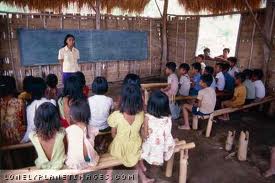The United States is a great nation, the most powerful and richer than ever. Why then, when it comes to academic success, our country is ranked at the bottom of the list of world's richest nations - the number 18 of the 24 countries?
And why Georgia ranks last among 50 states Scholastic Aptitude Test (SAT) score mean? It's not that Americans do not spend enough on education. We spend billions - a percentage of our national income is roughly the same as the average for the 23 other rich countries studied. But again, we rank number 18 in education. And Georgia, in fact, spends more per pupil than 10 other Southern states, which all Post Wed average higher scores than ours. So why do we delay - as a nation-state?
Maybe it's because you're spending more of our money, but spend less of our time and ourselves - to educate our children. Many of us are terribly busy right up. Others are worried about a challenging career, and the urgency and the unprecedented prosperity of modern life. The downtown airport is another factor. When well-off families to change the city to the suburbs, they often leave behind a family affl LINEAR less - and less human and financial resources in the schools of the city. Wealthy families who want to live in cities often send their children to private schools, including public schools takes away vital resources.
Clearly, the challenge of educating our children today are too complex for simple analysis and easy answers. However, educators and communities across the country are implementing effective solutions that meet specific needs in specific places. Despite these successes provide a wealth of ideas for many other communities, a message is very clear: that citizens of this great Nation, as residents of various communities and as members of different religious traditions, to act.
Historically, religious communities have played a crucial role in the creation and support of schools. Colonial Americans founded the forerunner of today's public schools to teach children to read and understand the Bible. Religious organizations established in virtually all our nation's earliest colleges and universities.
Similarly, today, people's faith is to work in ecumenical and interreligious partnership and cooperation between government, businesses, communities and other organizations to improve our education system. Religious leaders have faced major public support for education - in messages to their faithful and the community on matters of public debate. People of all faiths need to speak and to adopt the service and management positions is essential anti-public education.
Of course, there is no substitute for parents of public school children are actively involved in their children's education. But the responsibility of ensuring the future of our country must be shared by those who have no children in public schools. For example, parents of children in private schools, people without children and the elderly may help schools in their neighborhoods. You can spend your time, donate books, computers and expertise, and serve in many other ways. The fact is that problems related to education of children in our nation will continue to entire communities, including congregations, to invest more commitment and involvement in our public school system and individual school district. In fact, the question is not fi nancial, but moral. This is not about money, but interest and participation. The question is not whether we have the resources to ensure the future of our country - but if we care to do so.
